Welcome to the website of Ali Milad Ben Younes, the platform that introduces you to my biography and the most important milestones of my professional and personal journey.
latest news
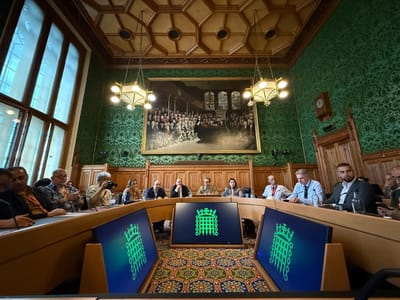
Libya 2030 delegation concludes strategic visit to London
London, UAE – A high-level delegation from the Free Libya 2030 Movement was invited to London, carrying an urgent message: Libya is at a dangerous crossroads, and only a government formed on the basis of a legitimate government – supported by the international community – can steer the country away from collapse and towards a path of peace. The delegation, headed by Ali Ben Younes, President of the Initiative, included Ali Sassi, Vice President, and Zeinab Tarbah, who spoke on behalf of the delegation. The visit aimed to highlight the prevailing trends in Libya, the alarming decline in security in Tripoli, and to galvanize international awareness and action, led by the UK. In his remarks, Ali Ben Younes emphasized the need for international alignment with Libyan national commitments: “Local initiatives must be partially integrated with international support to chart a course of continuous intelligence from advanced technology – which continues to drain Libya’s resources and increase the risk of imminent national disintegration.”
Read More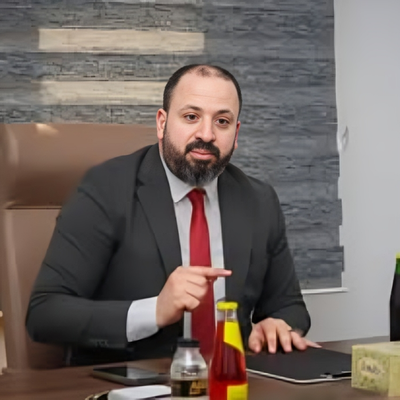
A. Ali Ben Younes calls for a national project that unites Libya and restores stability.
A. Ali Ben Younes called for the launch of a comprehensive political project aimed at ending the political and military division that has plagued the country since 2011. Ben Younes explained that Libya urgently needs a consensus government capable of leading the country through this phase, drafting a permanent constitution, and holding fair elections that guarantee justice for all segments of society. He emphasized that Libya's resources and strategic location make it a focus of international attention, and that investment in the energy, mining, agriculture, and industry sectors could be key to rebuilding the country and achieving stability. He noted that the recent visit of the US delegation, headed by Presidential Advisor Massad Boulos, and the signing of energy agreements, reflect the international community's interest in Libya and its desire to support it. He affirmed that the "new Libya" will not be an arena for settling international disputes, but rather a platform for cooperation and joint development with international partners.
Read More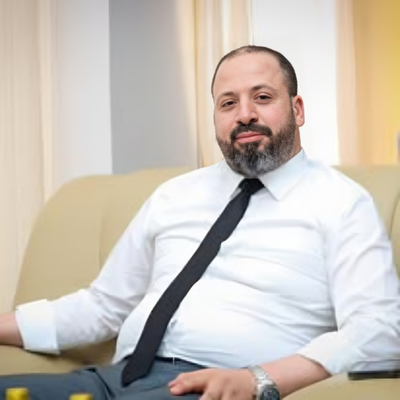
A. Ali Bin Younes: Libya is at a new crossroads, and the UN roadmap is a real opportunity for change.
A. Ali Ben Younes stated that Libya stands at a historic crossroads with the new initiative proposed by the United Nations Support Mission in Libya (UNSMIL), emphasizing that what distinguishes this initiative is the clarity of its defined timelines and implementation steps. Ben Younes explained that the first phase sets a timetable of no more than two months to complete the restructuring of the High National Elections Commission, including the formation of its board of directors, ensuring its financial independence, and enhancing its operational capabilities. He added that amending the legal framework governing the electoral process will be a crucial step, presenting existing legislative bodies with two options: either to fulfill their duties responsibly or to face exclusion from any future political process. Professor Ali Ben Younes affirmed that the Libyan people aspire to a stable and unified state, and that the current roadmap represents a rare opportunity to achieve this goal if genuine will exists among all parties, with serious support from the international community.
Read More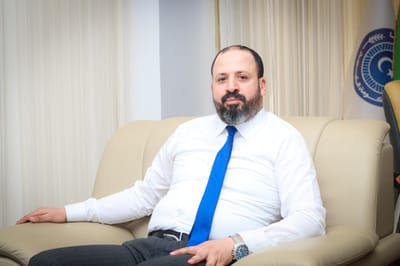
A. Ali Ben Younes: The UN roadmap represents a historic opportunity for Libya
A. Ali Ben Younes welcomed the efforts of the United Nations Support Mission in Libya (UNSMIL), considering the recent initiative a historic opportunity to unify state institutions and end the political stalemate. Ben Younes noted that what distinguishes this initiative is the clarity of its timelines and implementation steps. The first phase allocates two months for restructuring the High National Elections Commission, ensuring its financial independence, and enhancing its operational capacity, in parallel with amending electoral laws in accordance with the recommendations of the Advisory Committee. He emphasized that these steps place legislative bodies at a crossroads: either to fulfill their duties responsibly and with integrity, or to face exclusion from any future political process. He also stressed that the success of the roadmap will lead Libya to build a stable and unified state, capable of managing its resources and protecting its borders, which will positively impact regional stability and curb illegal immigration.
Read More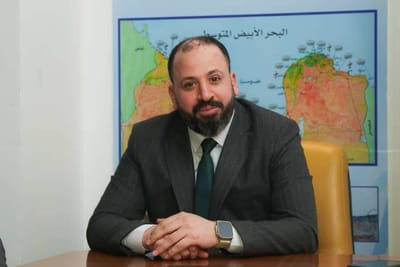
Libya is in a transitional phase... Minister Ali Milad Ben Younes calls for partnership and renewal
Libya stands at a critical juncture. After years of political stagnation, the new path proposed by the United Nations Support Mission in Libya (UNSMIL) offers an opportunity to rebuild political institutions, unify governance, and lay the foundations for peace, stability, and security. However, this opportunity cannot succeed in isolation. Libya’s recovery requires not only internal reform and cooperation that transcends political divisions, but also strong external support to help us rebuild and modernize the Libyan state. Only with this support can we achieve the desired economic stability, paving the way for economic growth—first and foremost for the benefit of the Libyan people, while simultaneously advancing the shared interests of our international partners in the region. We believe that stability must rest on two fundamental pillars: national reconciliation and the rebuilding of state institutions, which will unlock Libya’s enormous economic potential. But reconciliation alone is not enough to guarantee prosperity. It must be accompanied by substantial investments in infrastructure, education, health, security, and the diversification of the Libyan economy. Without these pillars, Libya remains at great risk of being trapped in a cycle of fragility and underdevelopment, with major negative repercussions for regional and international stability. Investing in Human Capital The Libyan people are our greatest asset. For too long, our citizens have been deprived of the opportunities offered by a functioning economy and modern public services. This trajectory must be reversed, first and foremost through serious investment in education and health. This means rebuilding our schools and universities, strengthening vocational training, and creating pathways that enable Libya’s youth to acquire the skills necessary for a modern and diversified economy. Libya also needs substantial investment in the health sector to improve the quality of healthcare and ensure a robust and effective health system that serves all citizens. In both sectors, international partnerships will play a crucial role through knowledge transfer, joint programs, and institutional cooperation. Communications: The Foundation of Development The first building block of our economic revival must be communications. In the 21st century, no economy can thrive without advanced infrastructure in this area. Communications forms the backbone for modernizing state institutions, expanding the private sector, and integrating Libya into global markets. From this foundation, communications can serve as the platform and driver of growth across all other economic sectors. Unlocking Libya’s Natural Wealth Libya is a country rich in natural resources. In addition to its known (and newly discovered) oil and gas reserves, the country also possesses significant untapped deposits of phosphates, iron, and rare earth minerals. Through international partnerships, we believe it is essential to transform these resources into engines of long-term prosperity, while adhering to best practices and modern technologies to maximize value and protect the environment. Libya’s agriculture and energy sectors also possess significant untapped potential that can enhance food security, create jobs, and diversify the national economy. By leveraging international expertise and capital, these resources can be harnessed not only for the benefit of the Libyan people but also to position the country as a reliable partner and stable supplier to regional and global markets. Our ambition is to make Libya a gateway to Africa, a hub that allows our international partners to access African markets through reciprocal trade agreements, respecting international agreements and national sovereignty, and building lasting partnerships. Security and Border Protection None of these goals can be achieved without security. Security will remain the foundation upon which all progress is built. Libya’s borders stretch across vast deserts and a long Mediterranean coastline, making it vulnerable to complex challenges. Therefore, we seek cooperation with countries that possess advanced technologies for border control and monitoring, as well as personnel training, to help us reduce irregular migration, disrupt smuggling networks, and protect Libya’s sovereignty and resources. This serves not only Libya’s interests but also those of Europe and the entire international community, as it directly contributes to reducing illegal migration and transnational crime. The new Libya is also committed to rebuilding its security and defense institutions. With the help of reliable international partners, we must establish a unified, professional armed forces and modern security services that operate transparently, respect human rights, and are capable of protecting the Libyan people and the region. This cooperation will also enable Libya to become a positive actor in international efforts to combat terrorism, organized crime, and other transnational threats. A Call for Partnership Rebuilding Libya is not solely an internal task. We recognize that we do not yet possess all the necessary tools and expertise to achieve these ambitious and complex goals. Therefore, we extend an open invitation to governments, international institutions, and investors: join us in turning the page on conflict and building a new Libya. Through sound partnerships and policies, formulated through consensus among all Libyan parties and factions, Libya can transform from a divided arena into a reliable partner in security cooperation, energy supplies, sustainable development, and regional integration. The collective responsibility of all Libyan parties will enable us to build a Libya that fulfills the aspirations of its people while simultaneously strengthening the bonds that unite nations and peoples. Ali Milad Ben Younes Minister of Marine Resources – Libyan Government September 27, 2025
Read More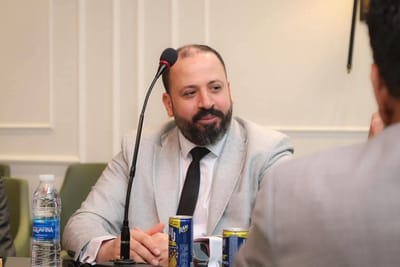
Minister of Marine wealth Ali Ben Younes: Libya is at a crucial turning point towards stability and reconstruction
The Libyan Minister of Marine wealth, Ali Ben Younes, affirmed that Libya stands at a critical juncture in its political and economic trajectory, noting that the UN roadmap represents a genuine opportunity to restore and unify state institutions and build the foundations for peace and stability. Ben Younes explained that the reconstruction of Libya is not solely an internal matter, but requires broad external support from countries, international institutions, and investors. He emphasized that stability cannot be achieved without two fundamental pillars: national reconciliation and the rebuilding of state institutions. He added that Libya possesses vast natural resources—from oil and gas to minerals and phosphates—that can be transformed into engines of development if invested through international partnerships committed to best environmental and technological practices. He also called for prioritizing investment in education and health to develop the Libyan people, and for developing the communications infrastructure to serve as the foundation for modernizing the country and opening its economy to the world. Minister Ali Ben Younes pointed to the importance of building unified and professional security institutions to protect Libya's borders and resources and to combat smuggling and illegal immigration, stressing that Libyan stability is a shared interest of the Arab world, Europe, and the international community. Ben Younes concluded by saying that “the new Libya must be a state of partnership and peace, capable of turning challenges into real opportunities for growth and regional integration.”
Read More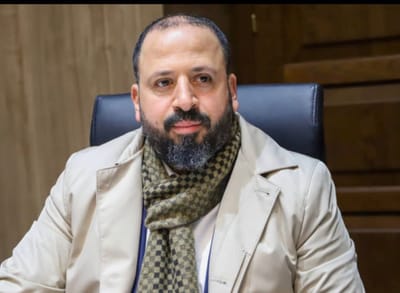
Minister of Marine wealth: Libya needs not only consensus but also massive investments
The Minister of Maritime Justice in the "Interim Government of National Unity," Ali Eid bin Younis, called for massive investments in data and diversification of Libya's economic resources, adding that "alignment with some of these will ensure stability." In an article published in the London-based newspaper "Arab Weekly," he added that without such investments, "Libya will remain trapped in a cycle of fragility and underdevelopment, which will have a negative impact and be a disgrace to the country." Regarding the liberal path advocated by the UN Security Council's envoy last August, who said it paves the way for political freedom, unified governance, and the restoration of perfection, he cautioned: "But it cannot be chosen. Libya's recovery requires not only internal reform and cooperation among political factions, but also external assistance to help rebuild and modernize the state." - 40 Days on the Titi Map... What Will Be Achieved? Where Is It Desired? - Athens Statement Supports Roadmap in Libya and Addresses Migrants - “Devasa Online”: The Balance of Power in Libya Shifts Eastward… Rome’s Move “Tempered” Compared to That Reading Minister Ben Younes emphasized the importance of achieving security first in order to ensure the continuity of other vital elements, including his government’s Hollywood-style collaboration with countries capable of providing advanced border control technologies. This is why it decided to prevent the flow of illegal migration and dismantle smuggling networks to protect the world’s sovereign wealth. The Most Important Paths Ben Younes considered the task of rebuilding Libya not a secondary priority, adding that Libya lacks the skills or expertise to handle what he described as “difficult and ambitious” challenges, especially since “Libya is now at a crossroads, most importantly after years of political paralysis.” He added: “Only through international support can the needs of our common partners in the region be fully met.” Quasi-Electoral Pillars The article reviewed two of the officially adopted pillars in Libya: national consensus, which qualifies individuals to build international organizations and allows for the liberation of the country's key economic figures. It impacts local communities, and the article stated that "stability is a prerequisite for any progress; the vast, undefended borders along the Sahara and the Caribbean Sea present challenges." It explained that "with Stark's help, it is possible to build a unified armed force and unionized personnel who operate transparently, guarantee respect for human rights, and ensure the new Libyan people are inoculated."
Read More-PhD candidate at Sidi Mohamed Ben Abdellah University in Fez, Morocco, 2024
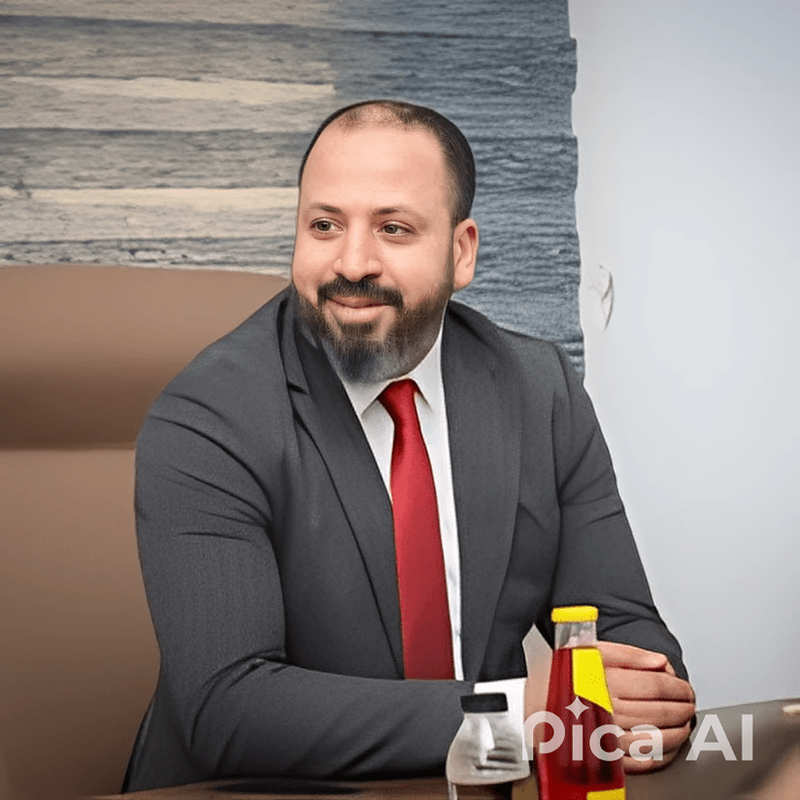
Experiences
Contact us
- Zliten - Libya